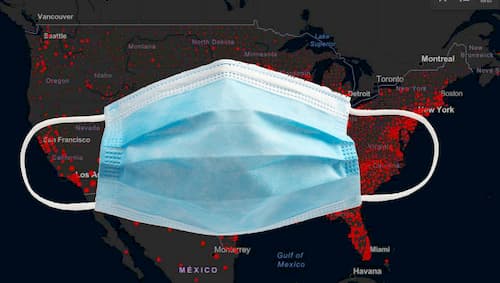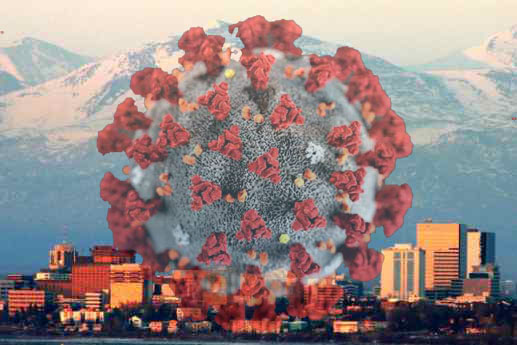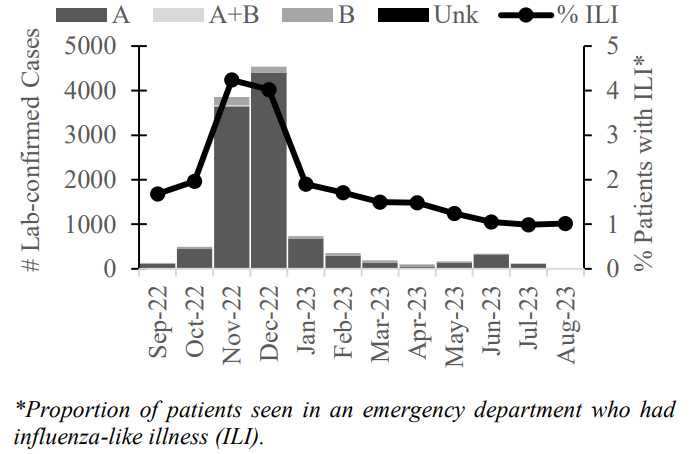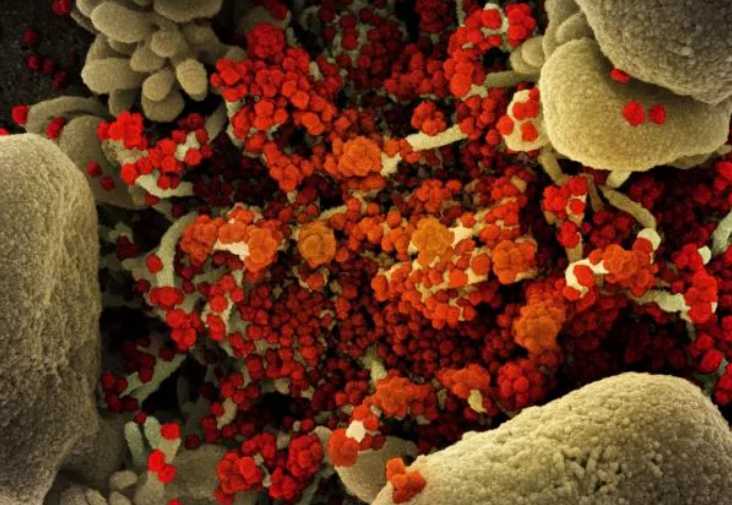The Alaska Department of Health Weekly COVID-19 and Influenza Update has been updated with data from the week of January 15 – January 21, 2023 and can be viewed here.
Key Findings:
-
COVID-19 transmission continued to occur in most parts of Alaska during the week of January 15 – January 21, 2023. There are some signals of increasing COVID-19 activity.
-
The number of patients hospitalized with COVID-19 has been generally stable over the past few weeks. Most parts of Alaska are at the “low” COVID Community Level as defined by CDC. Learn more about CDC’s recommended prevention steps at each community level here.
- While the number of influenza cases reported has declined considerably over the past several weeks, influenza activity in Alaska is ongoing and we could see another rise in influenza cases yet this season. As such, people who have not yet gotten their seasonal influenza vaccine can still benefit from getting it now. This includes people who have already had influenza infection because there are multiple strains of influenza circulating and the vaccine covers four different strains of the virus.
-
Now is a good time to receive a COVID-19 booster shot. Updated bivalent COVID-19 booster vaccines are recommended for most people aged 6 months and older who completed the primary series at least 2 months ago and have not yet received an updated booster. Visit vaccines.gov to find your COVID-19 booster and influenza vaccine. A recent CDC analysis found that the updated boosters help reduce the risk of COVID-19 caused by the new XBB variants.
-
Docket is a free, secure app that provides easy access to official vaccination records. You can download and carry a digital copy of your records anywhere at any time. For more information visit vaccinationrecords.alaska.gov.
-
People with symptoms of COVID-19 should get tested immediately. Those who test positive should notify contacts who may have been exposed. People with COVID-19 should isolate for at least 5 full days after their symptoms start (or positive test result in asymptomatic people) and wear a mask after leaving isolation. See CDC guidance on isolation for details. Treatments are available for people at higher risk of severe disease. See the updates section below for more information.
- People who have been exposed to COVID-19 should wear a mask for 10 full days and get tested at least 5 full days after exposure. Learn more about what to do if exposed. CDC no longer recommends quarantine of exposed persons in most settings, regardless of vaccination status.
-
Respiratory viruses circulate year-round in Alaska. Actions such as staying home when sick, washing hands, and improving ventilation can protect you, your family, and your community from COVID-19, influenza, and other infectious diseases. See an Alaska Public Health Alert Network message from September and a CDC Health Advisory from November for information on a variety of respiratory viruses.
Information and Resources:
-
Subscribe to DOH email or text updates for DOH press releases, blogs, COVID newsletters and more.
- DOH offers free presentations upon request to groups about COVID-19, vaccines, or other health topics. Learn more or request a presentation on our Speaker’s Bureau web page.
-
For the most up-to-date case information, see the Alaska COVID-19 Information Hub. All dashboard data are updated weekly by the end of the day on Tuesdays (except holidays). Please note this update used to occur on Wednesdays.
[content id=”79272″]





